
Whenever I write for The Epoch Times or other outlets about books, which is frequently, a reader or two will email me asking if I might send them a list of authors and titles worth their while. Most of them are looking for suggestions for their children and grandchildren, seeking to supplement their education with quality literature and histories. A few are autodidacts who, feeling that they are missing some fundamental part of their education, seek books to fill those gaps.
Though my responses are, I am certain, sometimes inadequate, these inquisitive folks have in one sense come to the right guy. “Books about books” constitute one of my favorite genres for reading.
In my home library are a dozen or more such books, ranging in size from Nick Hornby’s plump “Ten Years in the Tub: A Decade Soaking in Great Books” to Michael Dirda’s slim and elegant “Book by Book: Notes on Reading and Life.” Roberto Cotroneo makes far fewer recommendations in “Letters to My Son on the Love of Books,” but writes beautifully about the power of literature and its effect on our lives.
Somewhere in my collection—messy and scattered from packing and unpacking for an anticipated move that has yet to occur—is Pat Conroy’s user-friendly “My Reading Life.” Two books—Emma Beare’s “501 Must-Read Books” and James Mustich’s “1,000 Books to Read Before You Die: A Life-Changing List—stand side by side and are together over 3 inches thick.
The public library offers a wealth of such titles, and the internet sports many sites recommending all sorts of literary works.
So let’s grab a chair and take a look together at some guides to great literature.
Advice From 3 Bibliophiles
We’ll start with Michael Dirda’s “Book by Book: Notes on Reading and Life.” Dirda, who in 1993 won the Pulitzer Prize for Criticism, divides his book into topical chapters like “The Pleasures of Learning,” “Work and Leisure,” and “The Books of Love,” and fills each of these chapters with quotations, short literary essays, and reviews of many books.
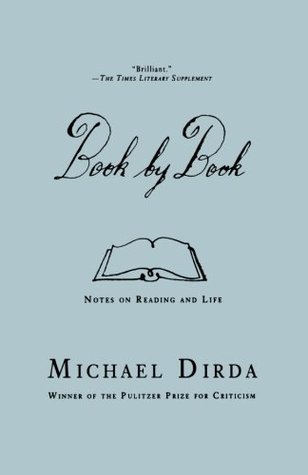
As Dirda writes in his Preface, “Over the past fifty years I’ve spent a lot of time—some might say an inordinate amount of time—in the company of books,” and thank heaven he did. His lifetime of reading and writing has enriched our literature. If you like “Book by Book,” try another of Dirda’s books from my collection, “Readings: Essays and Literary Entertainments,” his collection of essays on the joys of books and reading.
Novelist Nick Hornby’s “Ten Years in the Tub” has introduced me to many authors and books unfamiliar to me. Hornby wrote these long reviews, which reflect his own tastes and eccentricities, for the literary and arts magazine “The Believer.” Each review begins with an impressive list of “Books Read” and another of “Books Bought.” Hornby expresses himself with humor and wit, and blends passions other than literature into these reviews, with soccer and music at the top of the list.
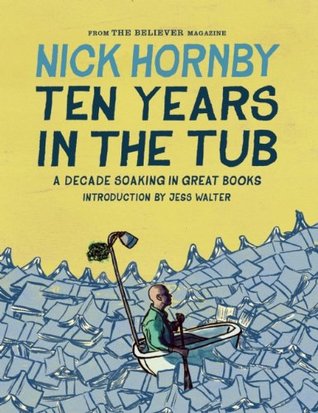
If you’re looking for a collection that includes modern books and classics, an enormous variety of subjects, and an erudite author who like Dirda and Hornby is an inveterate reader, “1,000 Books to Read Before You Die” should make the top of the list as well. James Mustich used to write the reviews for selected books for his catalog, “A Common Reader,” which was cause for celebration every time it arrived in my mail. In “1,000 Books,” he displays the talents honed in producing that catalog and creates a treasure house of titles and authors.
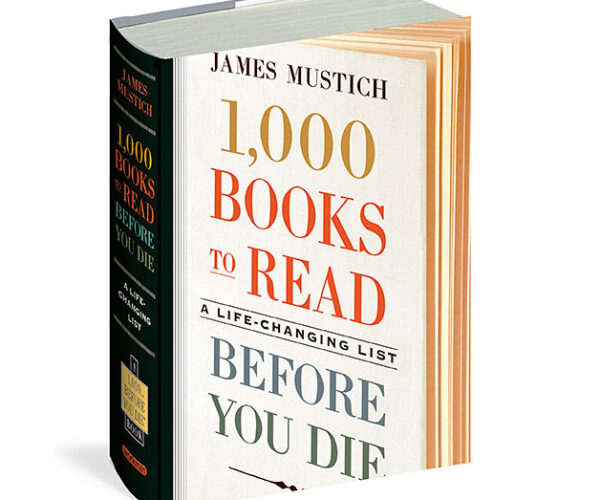
While writing this article, I randomly opened “1,000 Books” and found myself in the “K” section. Here, in alphabetical order by author were Roger Kahn’s baseball book, “The Boys of Summer,” Madeleine Kamman’s “When French Women Cook,” and MacKinlay Kantor’s Civil War fictional masterpiece, “Andersonville.” These entries demonstrate Mustich’s broad knowledge of literature and his skill in delivering concise and exquisite reviews. Along with his evaluation of each book, he also offers readers short lists of other related works.
For the Kids
Many excellent books of recommended reading for our young people are available. Given that contemporary children’s literature sometimes favors political correctness or consists of propaganda for certain social causes, parents might consider turning to guides that stress either older books or morality in literature.
A favorite reference in our family when my kids were young was Gladys Hunt’s “Honey for a Child’s Heart.” Aimed at children age 14 and younger, “Honey for a Child’s Heart” has sold more than 250,000 copies over the years, and there’s a reason for that success. Hunt is a book enthusiast and an expert on children’s literature who offers encouragement to parents along with an outstanding book list by grade. To gain a sense of her literary voice, let’s listen to her thoughts from Chapter 1: “Children and books go together in a special way. I can’t imagine any pleasure greater than bringing to the uncluttered, supple mind of a child the delight of knowing the many rich things God has given us to enjoy. Parents have this wonderful privilege, and books are their keenest tools.”
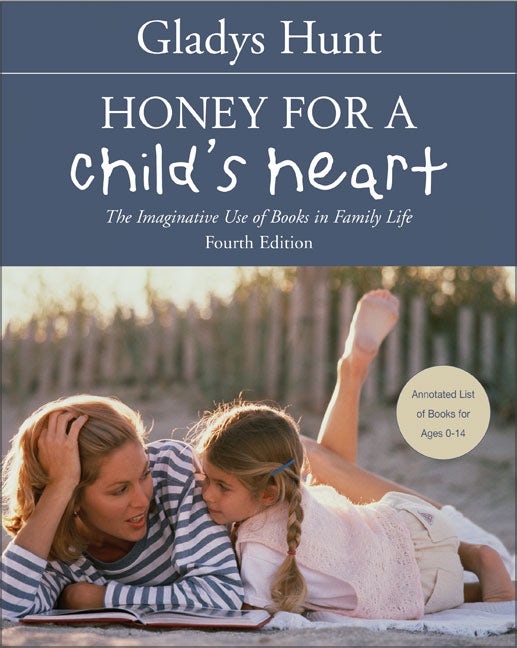
For this same age group, E.D. Hirsch and John Holdren put together “Books to Build On: A Grade-by-Grade Resource Guide for Parents and Teachers.” Hirsch, who is known for his advocacy of cultural literacy and as the author of a book by the same name, and who edited the Core-Knowledge Series, gives us in this compendium of book recommendations for math, language arts, history, geography, and more, all by school grade level. Here is good, solid material useful for a home education program or just for enjoyment.
Though I can’t put my hands on the book, I remember William Kilpatrick’s “Why Johnny Can’t Tell Right From Wrong” included a fine list of books for younger children and for teenagers, all of them aimed at inculcating morality and virtue in their readers.
Online Resources
Here, we need to exercise caution. When I Googled “best books for teens,” for example, one site that popped up suggested 20 books that teens should read before leaving high school. None of the books were older than 80 years, and nearly all of them were written in the last three decades. When you look over such a list, be vigilant and discerning to see if the recommendations align with your values. Search out online reviews, and read the description of the book, its characters, and its plot before handing it over to your child.
If you’re looking for the classics, the “Great Books List” from the Charlemagne Institute offers a fine online compilation of such works. Here, editor Annie Holmquist contacted various classical schools, both private and public, asked what their students were reading, and made a list of the most popular of these books for grades K–12. Some parents and teachers might be taken aback by some of these titles, particularly for the high school grades, and shake their heads, believing that famous works like “The Aeneid” or Sophocles’s “Theban Plays” are too difficult for young people today.
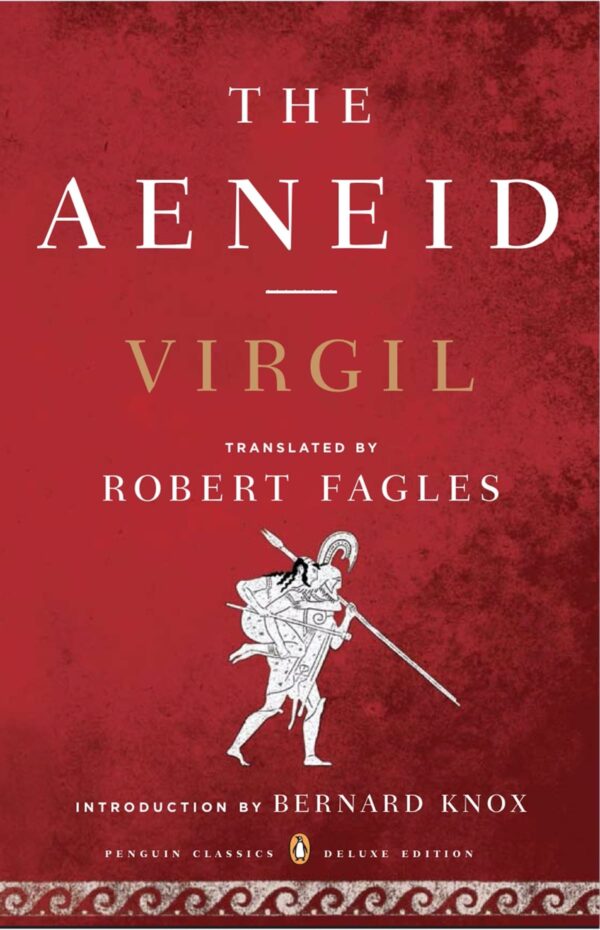
Not so. I taught some of the books on the Charlemagne Institute list to classes of homeschoolers, and though some of my students struggled—and probably a few never read the assigned texts—the majority had the ability to understand these classics. An example: To see a list of the books I intended to teach at the end of my career, please go to AshevilleLatin.com/books-and-summer-reading and click on “Books and Summer Reading.”
One excellent list of books for teens may be found online at “Best Classic Books for Teens (141 Books).” Here, as well as classics like “The Odyssey” and “Jane Eyre,” we find books by writers like Roald Dahl, T.H. White, and Patricia MacLachlan.
Shared Reading
One of the great joys of reading is a book shared with a friend. Using the resources mentioned above, we can easily organize a book club for ourselves or for our children. Young people find such get-togethers to discuss a shared book an incentive for reading the book in the first place, but they also see them as just plain fun. Several of my grandchildren have participated in these clubs and return home excited by the conversation and their friends.
The same holds true for adults. A book club can serve as a springboard into reading the great classics or sharing some worthwhile contemporary works.
Who’s Noah?
In one of the books I looked over while preparing this article—I can’t recollect the book—a professor recounted an incident from his classroom. At one point during a discussion, a student raised his hand and asked, “Who’s Noah?”
This ignorance is not unusual. In my own classes were students unfamiliar with certain commonplace nursery rhymes. Some had only a vague notion of our Founding and our Constitution, or had little or no knowledge of American figures like John and Abigail Adams, Booker T. Washington, and Theodore Roosevelt.
One mission of The Epoch Times is the celebration and preservation of culture. Sections in the paper like “Arts & Culture,” “Family & Tradition,” “Home,” and “Mind & Spirit” all include many articles that emphasize handing over the gifts from the past to the present generation. We can all take part in this mission by actively engaging with history, the arts, and the customs of our ancestors; in other words, by reading books.
The guides mentioned here—and these are but a fraction of what is available—point us to titles and authors that can help accomplish that task. All we have to do is pick up these tools and put them to use.
Jeff Minick has four children and a growing platoon of grandchildren. For 20 years, he taught history, literature, and Latin to seminars of homeschooling students in Asheville, N.C. He is the author of two novels, “Amanda Bell” and “Dust On Their Wings,” and two works of non-fiction, “Learning As I Go” and “Movies Make The Man.” Today, he lives and writes in Front Royal, Va. See JeffMinick.com to follow his blog.





Be the first to comment